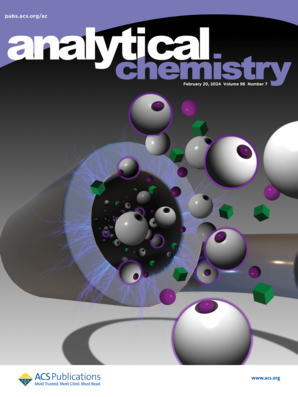Photocurrent Polarity-Switchable Imaging of Single Living Cells by Light-Addressable Electrochemical Sensor
Abstract
The light-addressable electrochemical sensor (LAES) is a powerful tool for single-cell imaging due to its label-free and probe-free advantages. In this work, we report a photocurrent polarity-switchable LAES using a single-phase photoelectrode of a BiFeO3 thin film for living cell imaging. The proposed BiFeO3 could show both p- and n-type photocurrent behavior by simply altering the external bias voltage. LAES imaging of the same individual MCF-7 cells was performed in anodic and cathodic modes. Decreases in both photocurrents were observed due to the hindering effect of the adherent cells on local photoinduced Faraday currents. Furthermore, the dynamic photocurrent changes on cells after trypsin treatment were imaged and studied at anode and cathode polarities. Both polarities showed an increase in local photocurrents on cells as the cell–substrate junction weakened, and this change displayed heterogeneous characteristics. This is the first time that LAES cell imaging was achieved in a p-type mode. Meanwhile, our photocurrent polarity-switchable imaging approach overcomes the limitations of conventional photoelectrodes, which have been confined to single-polarity operation. We believe this work has the potential to significantly broaden the application scope of LAES in single-cell visualization and analysis, offering great insights into cellular behavior and function.





